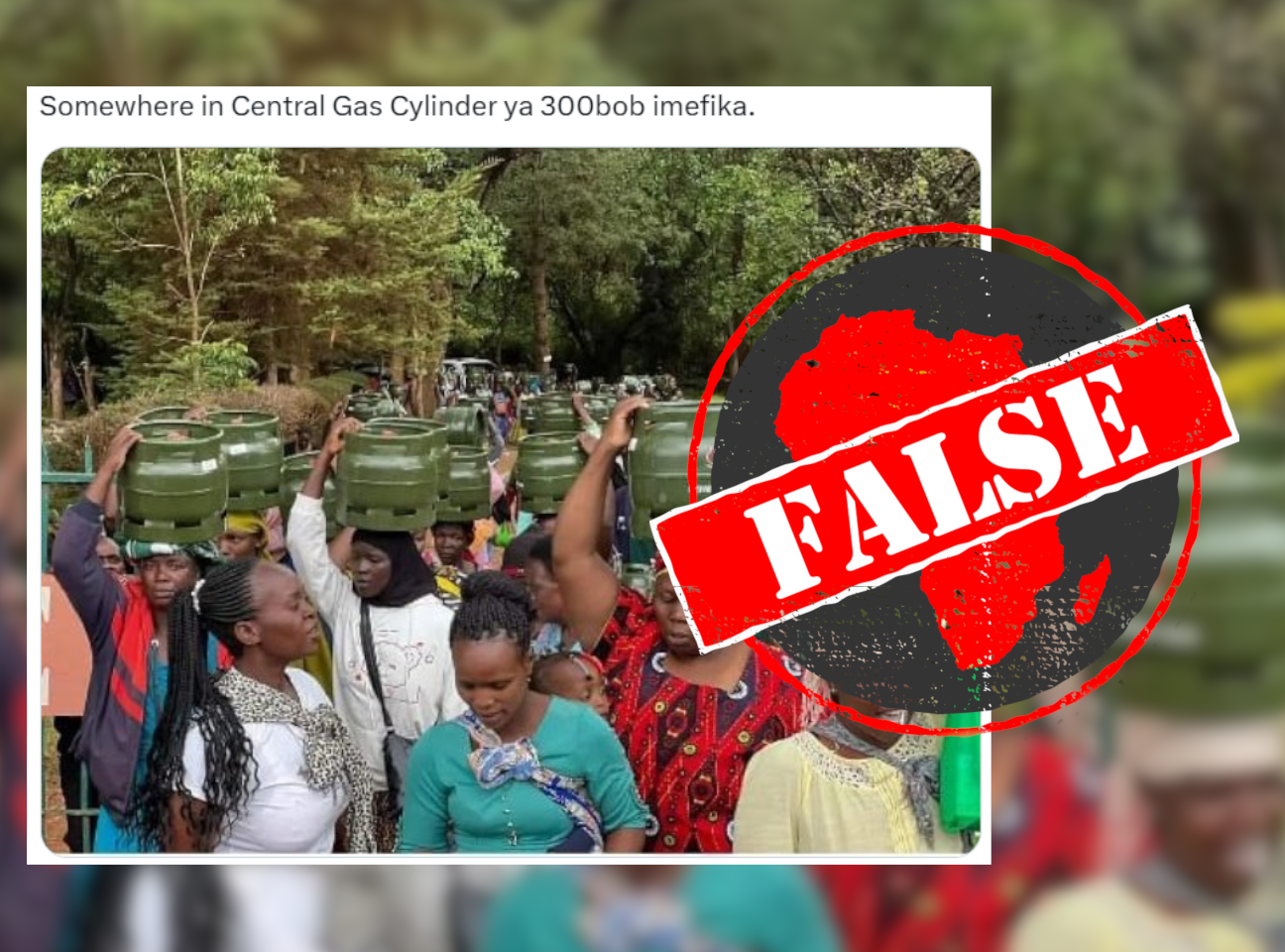IN SHORT: Photos circulating on social media claim to show distribution of the low cost cooking gas promised by president William Ruto in some parts of the country. This is not true.
A photo of a group of women carrying 6-kilogram gas cylinders on their heads has been circulating on social media in Kenya since mid-May 2023.
The photo is often accompanied by claims that it shows the distribution of cheap cooking gas cylinders promised by Kenyan president William Ruto.
The text explaining this photo on Twitter is written in a mix of English and Kiswahili and can be translated as: “Somewhere in Central Kenya, the KSh300 gas cylinders have arrived.”
This other one reads: “It's not business as usual as Mount Kenya residents who voted Mr. William Ruto to the last man are coming out in large numbers to condemn the Kenya Kwanza Government. The Kikuyus want the KSh300-500 gas that Ruto promised.”
This Facebook post in Kiswahili can be translated as: “Thank you, Ruto. The KSh300 gas has been found.” Other posts include this one. The posts have been viewed over 60,000 times collectively.

LPG use in Kenya
The use of liquefied petroleum gas (LPG) in Kenya has increased in recent years due to its increased availability and friendly government policies.
According to a World Health Organization fact sheet, a third of the world's population cooks with open fires or inefficient gas and wood stoves, which cause household air pollution and millions of deaths worldwide each year.
In late February 2023, Ruto launched the construction of the Taifa Gas LPG terminal in Mombasa, which is expected to increase production, leading to more market competition and a reduction in prices.
In early March, the president said his government would remove all taxes, including the 8% value added tax on LPG cylinders. He said this would result in the price of gas dropping from KSh2,500 to KSh2,800 at retail to around KSh500 or even KSh300.
He said the new prices would come into effect from June 2023. Two weeks later however, Ruto said the much-anticipated KSh300 price would not be possible by June. This, he said, was because approval for the plan had to be in the new budget, which takes effect from 1 July.
Ruto campaigned on the message that he would be a president for the poor and low-income earners, and that he would reduce the cost of living in his first 100 days.
This has been questioned by some, particularly with his change of heart on some promises and the nature of some of his public appointments where the wealthy have frequently been picked as leaders.
But does the picture in question show the promised KSh300 bottles of gas? We checked.
Cylinders in photo were gifted
A reverse search engine image search leads to this May 2023 post, which shows that the photos were taken in the Rift Valley county of Trans Nzoia, nearly eight hours away from the capital Nairobi.
In the photo, the representative of Matisi Ward in Saboti constituency, Obed Mwale, reportedly distributed 700 gas cylinders to women in the ward as part of an initiative to provide clean energy solutions.
So the photo does not show Kenyans buying the cheaper gas promised by the new government, as claimed.
Republish our content for free
For publishers: what to do if your post is rated false
A fact-checker has rated your Facebook or Instagram post as “false”, “altered”, “partly false” or “missing context”. This could have serious consequences. What do you do?
Click on our guide for the steps you should follow.
Publishers guideAfrica Check teams up with Facebook
Africa Check is a partner in Meta's third-party fact-checking programme to help stop the spread of false information on social media.
The content we rate as “false” will be downgraded on Facebook and Instagram. This means fewer people will see it.
You can also help identify false information on Facebook. This guide explains how.




Add new comment